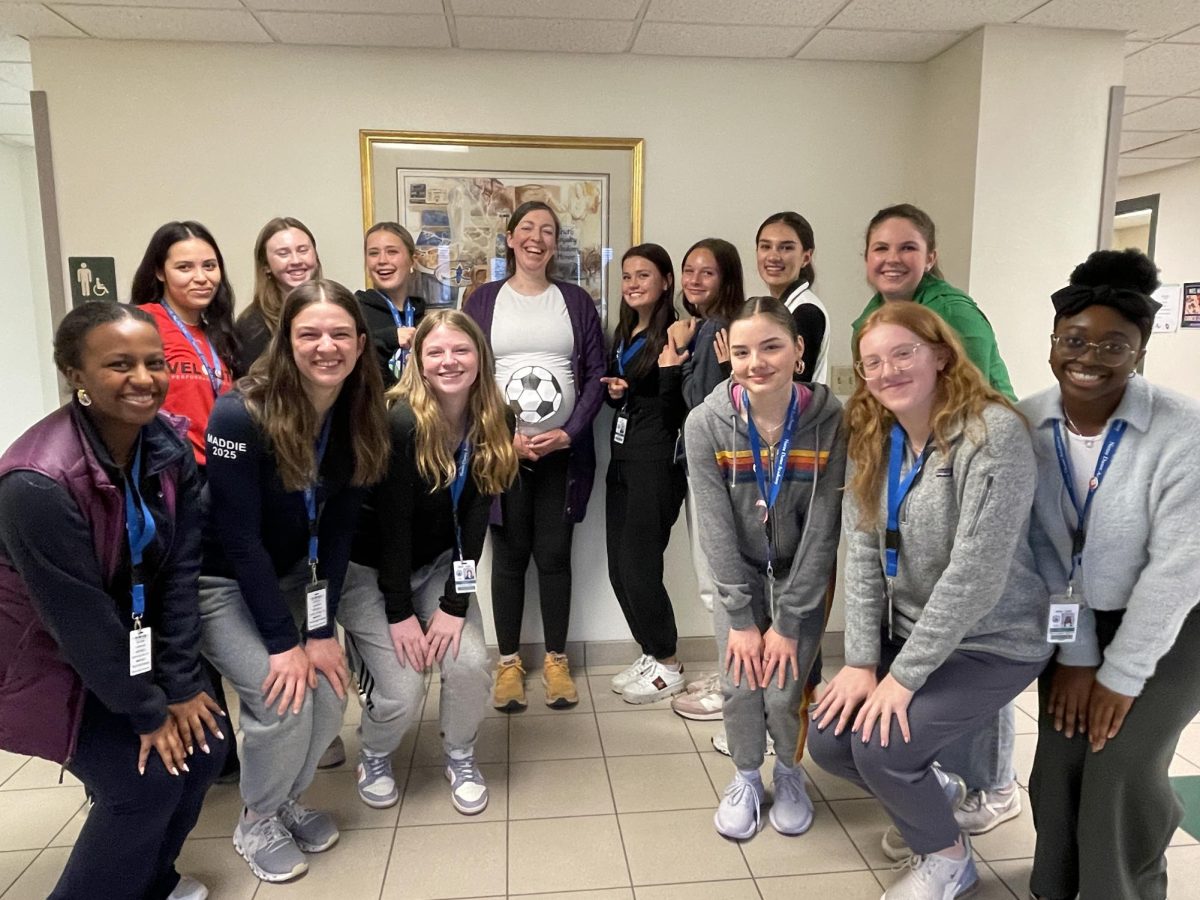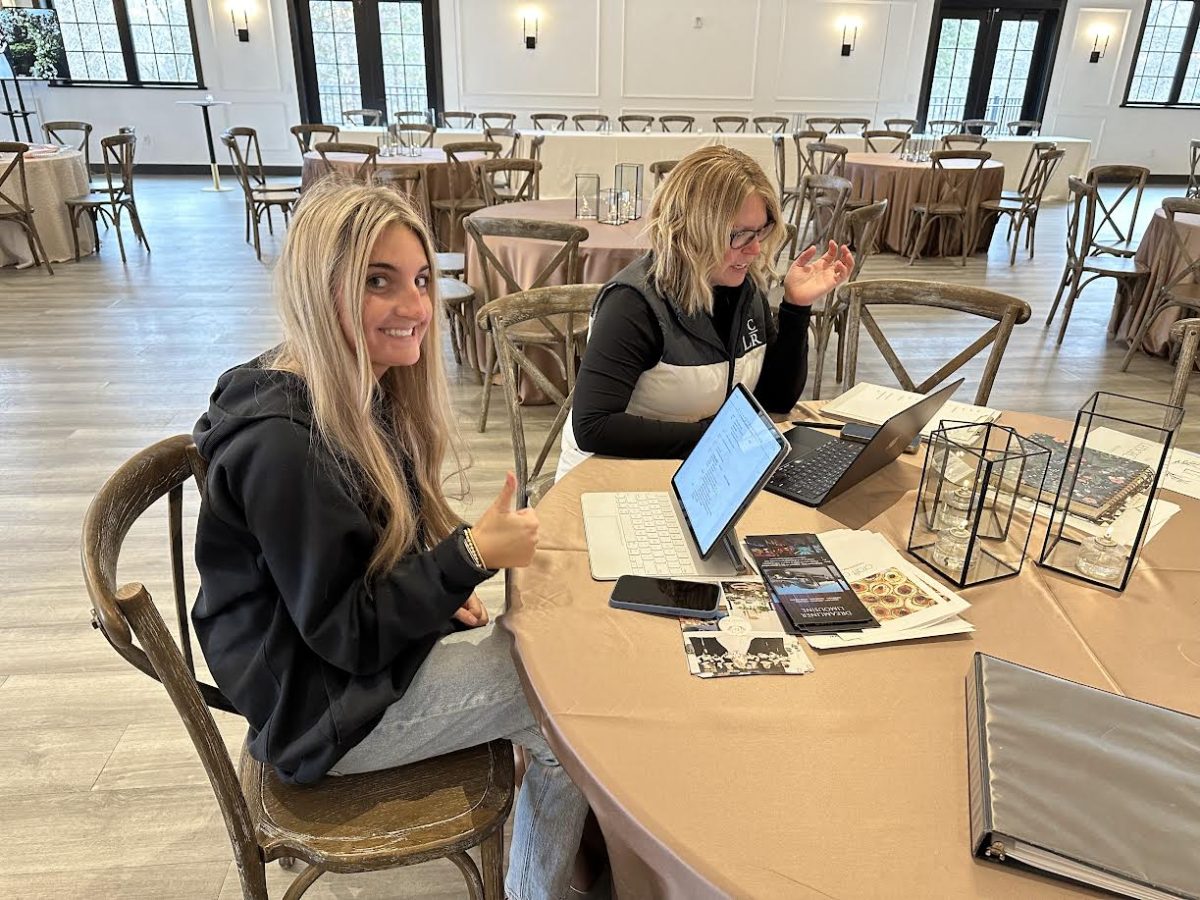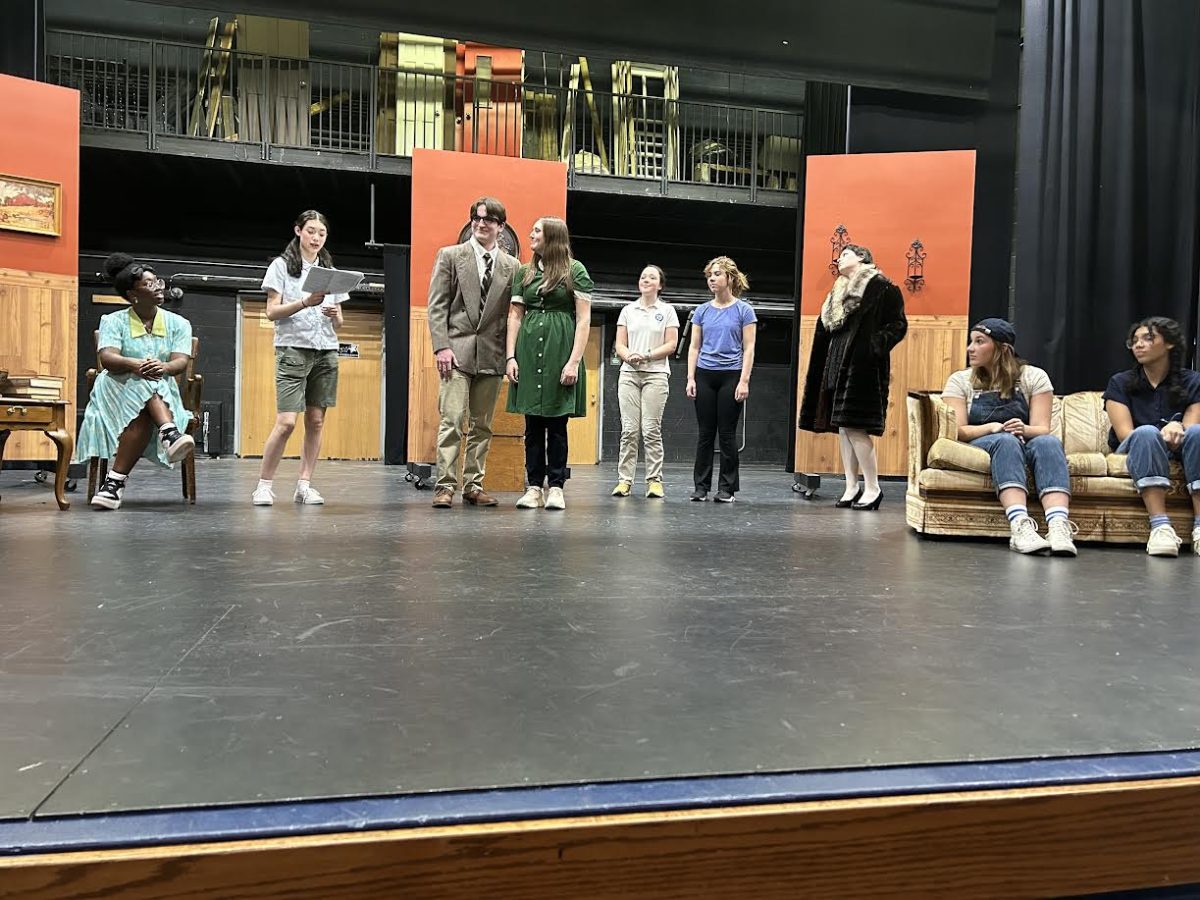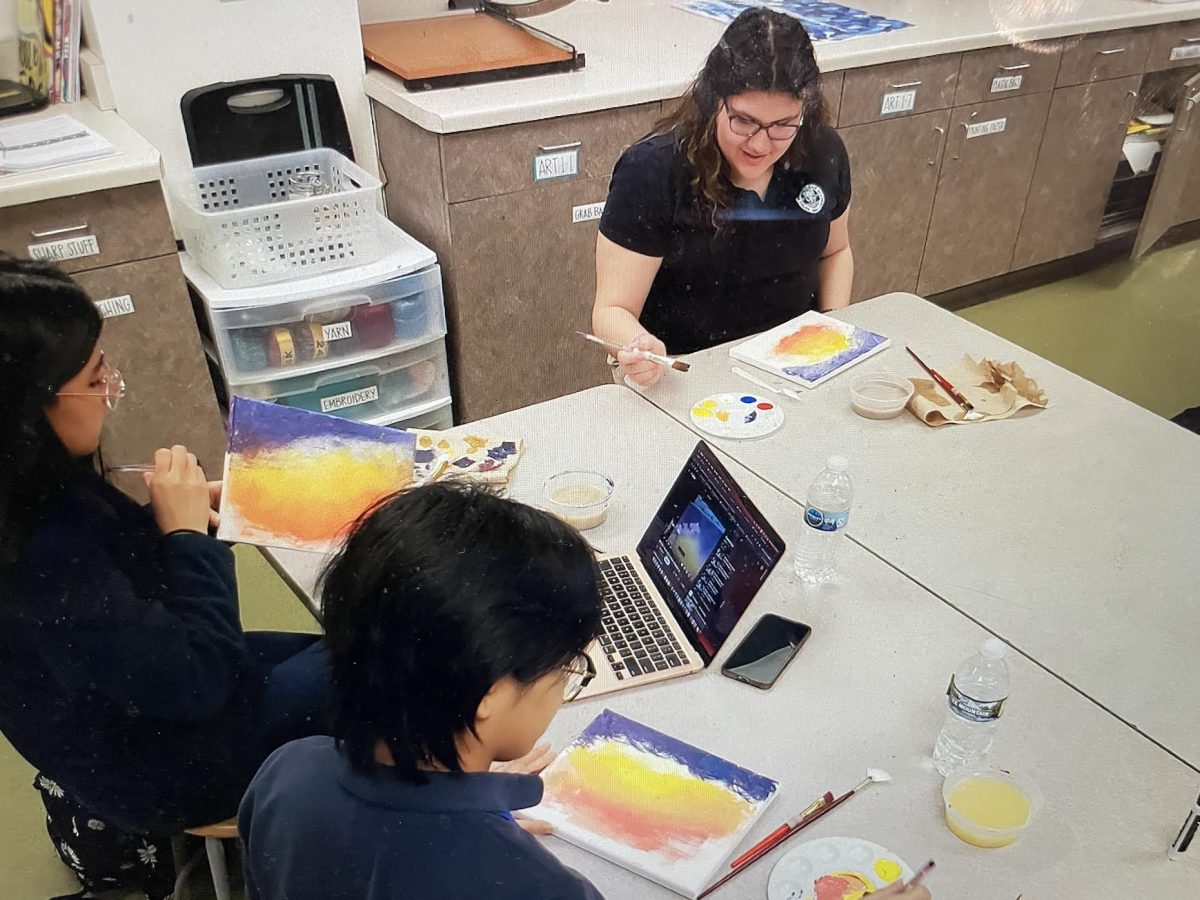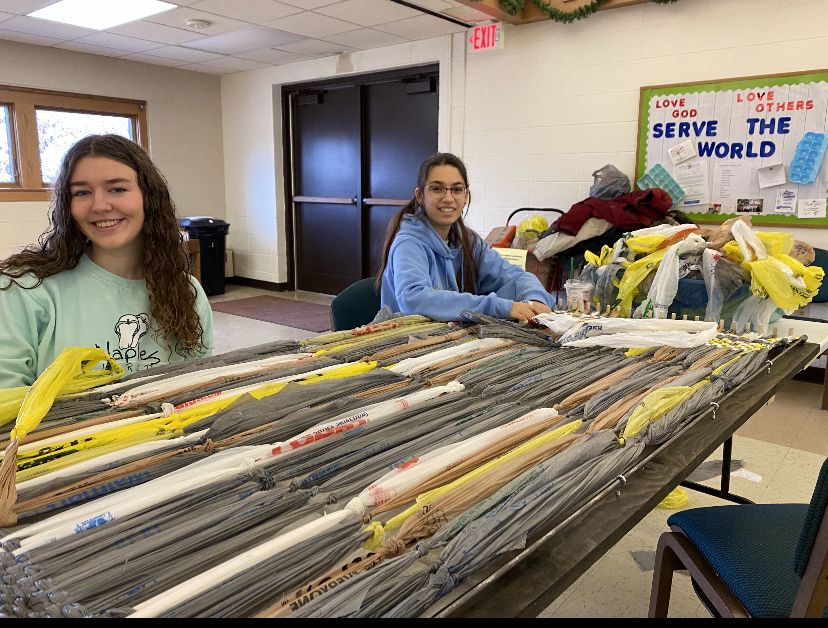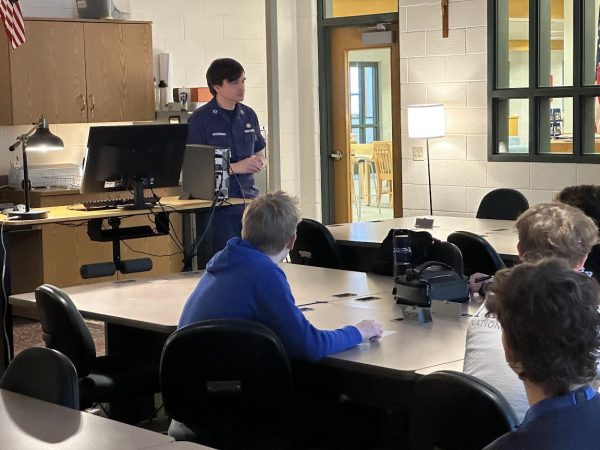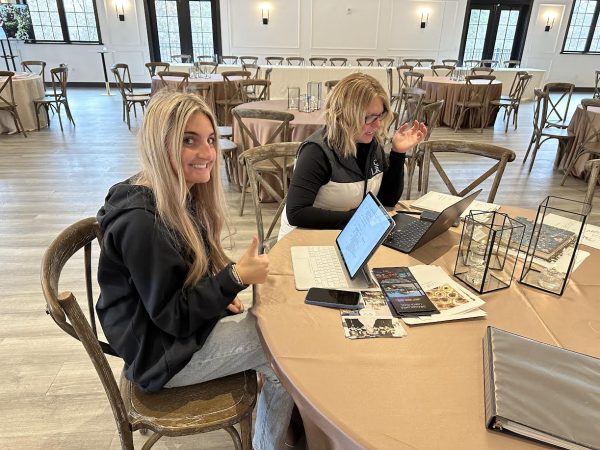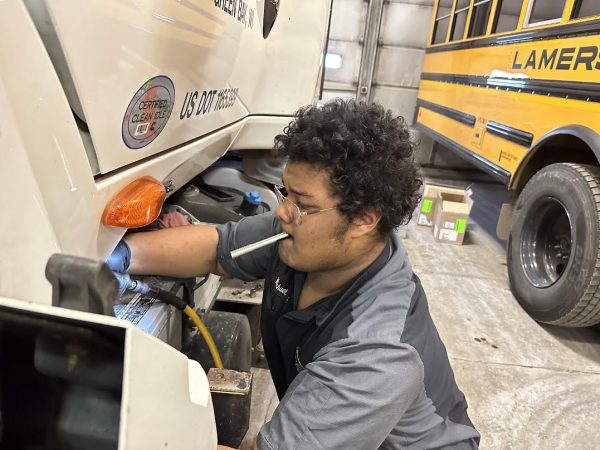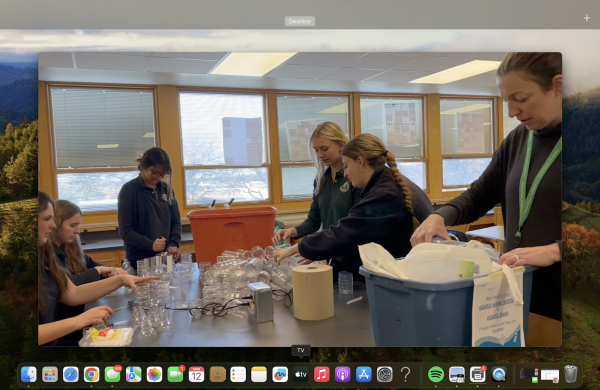Campbell Sees BYOD as Paradox
December 13, 2016
Social studies teacher Julie Campbell sees the BYOD policy as paradoxical: it’s nice but it’s also a distraction. In most of her classes she lets the students use their device if they want to.
However, many of the students get off track when they have their computers. She has already caught quite a few students doing what they shouldn’t be doing.
“They say they’re taking notes,” said Campbell. Campbell thinks that they might be doing something else on their computer but knows that she needs to trust them when they say what they are doing.
Most of the kids that are misusing the policy are usually playing games or online shopping.
Mrs. Campbell said BYOD makes “it easier to teach but harder for classroom management.” Such seems to be a reoccurring theme among teachers–that devices are helpful to learning but hard to manage.
During study hall in the commons teachers sit in their normal spots but have students facing away from them so the teacher is able to see their screens.
In regular classrooms it’s harder unless teachers teach from the back of the room, but most teachers like teaching from the front.
“I need eye contact with my students,” said English teacher Carolyn Brown. “I get energy from their interest. If I talk from the back of the room, I don’t have a sense of connecting with them.”
Campbell said that the BYOD policy does cut down on the amount of paper she uses in her classes because instead of doing things on paper she just has the students type it and turn it in online.
Campbell believes the school was ready for this new policy to come into effect but thinks that there are changes that need to happen, as well as a lot of learning for the teachers and students about the computers and the policy.


